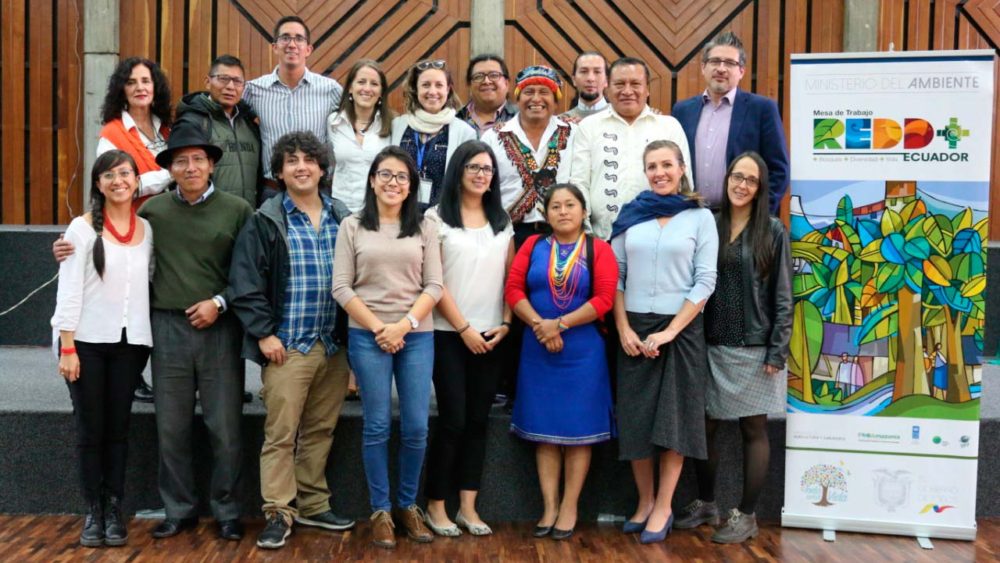
“The participation of communities, peoples and nationalities, as well as civil society, is essential for the implementation of REDD+. Their opinions and needs have to be expressed openly and influence the making of any decisions that could affect their territory.” (Ecuador REDD+ Action Plan 2016-2025).
The participation of relevant stakeholders such as indigenous communities, peoples and nationalities that depend on forests for their subsistence, NGOs, private sector and academia, has been one of the most important achievements of the country in terms of participation in the preparation and implementation of REDD+.
Thus, the REDD+ Roundtable is the national space for citizen participation that has the greatest impact on the preparation and implementation of REDD+ in Ecuador, not only because diverse local stakeholders linked to forests are involved – CONFENIAE, FEDOMEC,

beneficiary communities of the Socio Bosque Program, Asociaciones Agroartesanales Wiñak and Mujeres Wao del Ecuador, and others – rather because they have been involved as strategic stakeholders during all phases of REDD+, contributing to the development of policies, programs and projects based on the vision and needs of the stakeholders and their direct coexistence with the forests, and are close to the processes that have impacted the territories.
All national policies and regulations developed during the REDD+1 preparation phase since 2012, were debated in this space and include their contributions. During the implementation of the programs and projects that are currently applying the measures and actions of the REDD+ Action Plan – PROAmazonía and REM – Roundtable Members have learned firsthand about the progress of the projects, and many have been become involved as partners and direct beneficiaries due to their efforts in forest conservation and sustainable management.
One of the milestones of the Roundtable in 2019-2020 was their contribution as social stakeholders to national efforts to access the third phase of REDD+ – Payment for Results – where Ecuador was recognized by the Green Climate Fund for having reduced deforestation in 2014. During formal meetings of the REDD+ Roundtable in 2019 and 2020 (6th, 7th, 8th, 16th and 17th meetings), Members provided technical inputs, suggestions and strategic proposals so that the Payment for Results financing proposal would have a comprehensive vision based on the different points of view, needs and worldviews of the diverse stakeholders of the Roundtable, as well as from the lessons learned in the implementation of REDD+ in Ecuador, which they have observed as local stakeholders.
As a result of the dialogues in the Roundtable, part of the financing received as payment for results will be used to strengthen measures and actions of Amazonian indigenous peoples, and a large portion of the project activities will be carried out in the Coast and Sierra, which have been frequent requests of REDD+ Roundtable Members.
The implementation of REDD+ in Ecuador considers the REDD+ Roundtable to be a national space for participation – which legitimately represents diverse social stakeholders with interests and rights over forests – to develop and validate policies, programs and projects that will contribute positively to the continuity of REDD+ measures and actions that are implemented in high-priority territories to end deforestation and forest degradation in the country.
The global context of unsustainable natural resources and forest management makes it increasingly important to promote and strengthen participatory processes and deal with great challenges, such as the generation of creative and innovative mechanisms to strengthen the social fabric and governance of forests at the local and national level.
1 – REDD + Action Plan Forests for Good Living 2016-2025, Ministerial Agreement, Regulation and Participation Guide of the REDD + Work Table, National Guide for Consultation in Collective Territories, among others –
 Español
Español English
English
